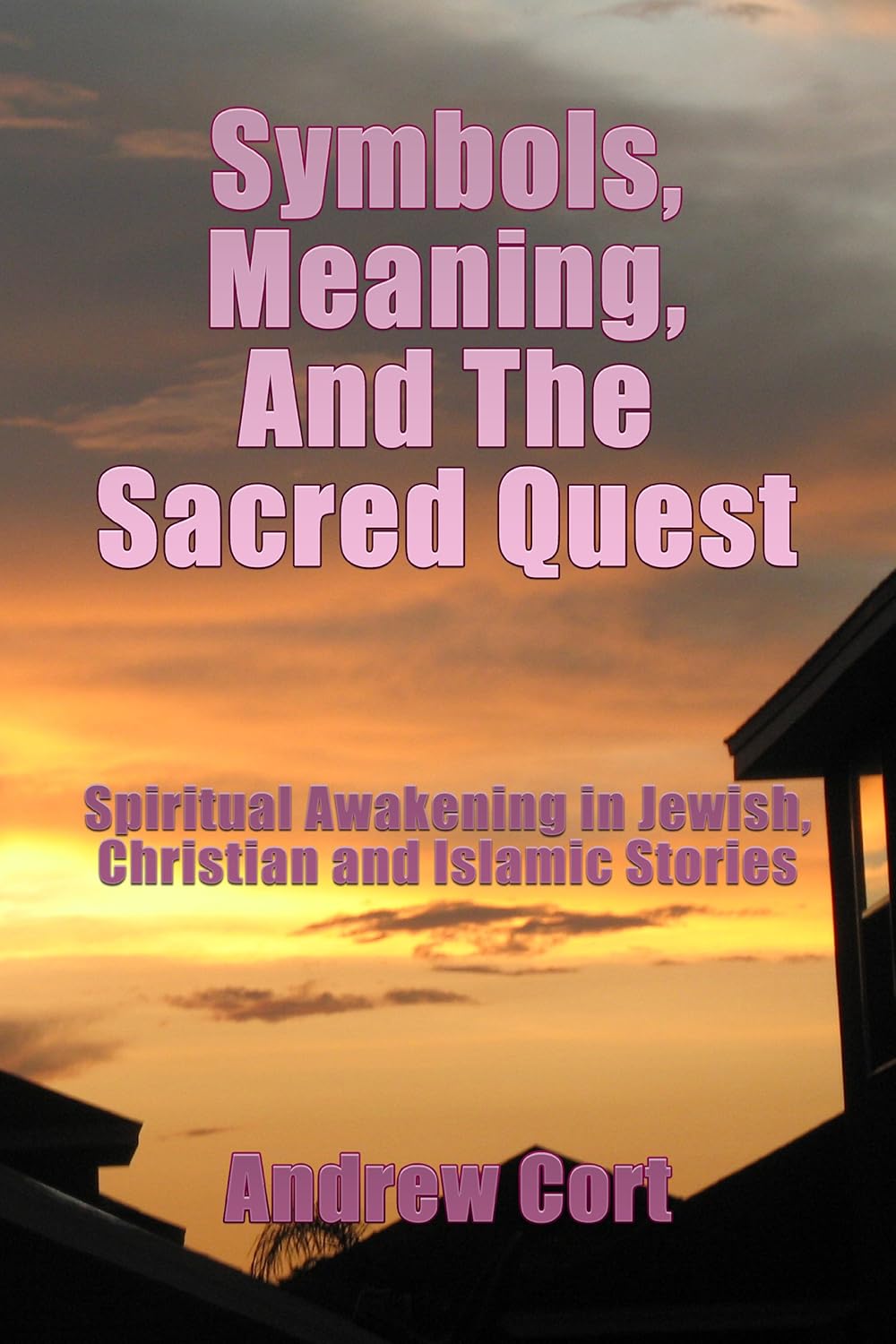Book review: Symbols, Meaning, and the Sacred Quest
by Andrew Cort
★★★★
How on earth do I rate this book? I had no idea what Cort was talking about most of the time, yet I loved the book. It’s insightful and full of little anecdotes from oral tradition, definitely a flavorful way of reading the Bible.
I don’t claim to be very “spiritual,” so I’m hoping not to butcher an explanation of this book. But here’s the gist: The Octave, do-si-la-sol-fa-mi-re-do, is an ancient and universal symbol, a blueprint for the sequential stages of change. “Do,” for our purposes, may be thought of as God, the beginning of the journey and the end. The bottom of the scale and the top. The fully-enlightened and the fully-unenlightened. Each step up the scale, then, is a stage of the journey of enlightenment from God to God.
Cort instructs us how to read the Bible and the Qur’an in all their symbology, awakening our spiritual self. Over and over, through the stories of our sacred pages, Cort points out the steps to enlightenment until we are finally able to read the Bible for ourselves. The Law of the Octave hides in the plagues upon Egypt; in crossing the wilderness; in conquering the Promised Land, and much more. Indeed, it’s the Old Testament stories in all their gory detail that I found Cort’s manner of reading most interesting. Read literally, parts of the Bible can be distasteful, so it could use a little surface-scratching.
“Every time that you find in our books a tale the reality of which seems impossible, a story which is repugnant to both reason and common sense, then be sure that the text contains a profound allegory veiling a deeply mysterious truth; and the greater the absurdity of the latter, the deeper the wisdom of the spirit”. –Moses Maimonides.
I confess, when I reached the New Testament I felt less need for a spiritual translation, since the stories there are generally beautiful enough without going in search of a deeper meaning. Cort plunges on, though, leaning heavily (as we would expect) on John’s Gospel, the most mystical of the four Gospels, and when he gets through the N.T. he tackles the Qur’an.
Fascinating book, and while I don’t yet feel very enlightened, I’m certain the book will hit the sweet spot for many.












 354 Circles
354 Circles
 603 Goodreads Friends & Fans
603 Goodreads Friends & Fans

 Hello! I'm an author, historical Jesus scholar, book reviewer, and liberal Christian, which means I appreciate and attempt to exercise the humanitarian teachings of Jesus without getting hung up on any particular supernatural or religious beliefs.
The Bible is a magnificent book that has inspired and spiritually fed generations for thousands of years, and each new century seems to bring a deeper understanding of life’s purpose. This is true of not only Christianity; through the years, our age-old religions are slowly transforming from superstitious rituals into humanitarian philosophies. In short, we are growing up, and I am thrilled to be riding the wave.
I avidly read all thought-provoking religion titles. New authors: I'd love to read and review your book!
Hello! I'm an author, historical Jesus scholar, book reviewer, and liberal Christian, which means I appreciate and attempt to exercise the humanitarian teachings of Jesus without getting hung up on any particular supernatural or religious beliefs.
The Bible is a magnificent book that has inspired and spiritually fed generations for thousands of years, and each new century seems to bring a deeper understanding of life’s purpose. This is true of not only Christianity; through the years, our age-old religions are slowly transforming from superstitious rituals into humanitarian philosophies. In short, we are growing up, and I am thrilled to be riding the wave.
I avidly read all thought-provoking religion titles. New authors: I'd love to read and review your book!
 Hi! While Lee writes the articles and reviews the books, I edit, organize, and maintain the blog. The views expressed here are Lee's but I'm his biggest supporter! :-)
Hi! While Lee writes the articles and reviews the books, I edit, organize, and maintain the blog. The views expressed here are Lee's but I'm his biggest supporter! :-)
Does sound fascinating
I’m reading a similar book now, will be reviewed in a couple days, the “spiritual” type are starting to tire me out…I’m such a die-hard historical-critical Bible reader that it’s difficult for me read 100% for the spiritual message. But I keep thinking someday, it’ll all click, and my religious beliefs will transform overnight. Everybody should undergo a radical change of beliefs at least a couple times in their life, should be about time for my next one. I’ll keep hoping, lol.
But I keep thinking someday, it’ll all click, and my religious beliefs will transform overnight. Everybody should undergo a radical change of beliefs at least a couple times in their life, should be about time for my next one. I’ll keep hoping, lol.
I’m having a radical change right NOW! It’s a strange feeling! It’s my second one. Good comment!
Have you ever done a book review on any of Brennan Mannings books? Eg: The Ragamuffin Gospel
I haven’t read it, no, but it’s gotten very good reviews! I see he’s got a whole line of ragamuffin books now, I better give one a try, thanks!
Thanks, Lee. “Abba’s Child” is very good. To get an idea at what he is getting at, I have watched a few of his you-tube sermons and they are very good indeed. I’ll be interested to see what your thoughts are.